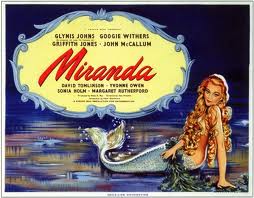
Miranda is a 1948 black and white British comedy film, directed by Ken Annakin and written by Peter Blackmore, who also wrote the play of the same name from which the film was adapted. The film stars Glynis Johns, Googie Withers, Griffith Jones, Margaret Rutherford, John McCallum and David Tomlinson. Denis Waldock provided additional dialogue. Music for the film was played by the London Symphony Orchestra, conducted by Muir Mathieson. The sound director was B. C. Sewell.
Frank Sydney Box was a British film producer and screenwriter, and brother of British film producer Betty Box. In 1940, he founded the documentary film company Verity Films with Jay Lewis.

Can't Stop the Music is a 1980 American musical comedy film directed by Nancy Walker. Written by Allan Carr and Bronté Woodard, the film is a pseudo-biography of the 1970s disco group the Village People loosely based on the actual story of how the group formed. Valerie Perrine, Caitlyn Jenner and Steve Guttenberg co-star.
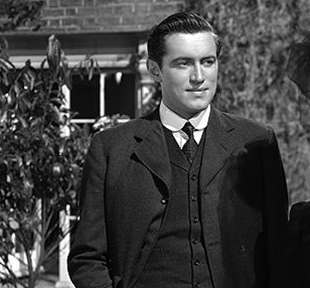
John Neil McCallum, was an Australian theatre and film actor, highly successful in the United Kingdom. He was also a television producer.

Traveller's Joy is a 1949 British comedy film directed by Ralph Thomas and starring Googie Withers, John McCallum and Maurice Denham. Based on a West End play of the same name by Arthur Macrae, it was the last film released by the original Gainsborough Pictures.

Christopher Columbus is a 1949 British biographical film starring Fredric March as Christopher Columbus and Florence Eldridge as Queen Isabella. It is loosely based on the 1941 novel Columbus by Rafael Sabatini with much of the screenplay rewritten by Sydney and Muriel Box.

Jassy is a 1947 British colour film historical melodrama set in the early 19th century, based on a novel by Norah Lofts. It is a Gainsborough melodrama, the only one to be made in Technicolor. It was the last "official" Gainsborough melodrama.

When the Bough Breaks is a 1947 film directed by Lawrence Huntington and starring Patricia Roc and Rosamund John. It is an adaptation of an original storyline by Herbert Victor on adoption and the competing ties of one child's birth and foster family.

The Bad Lord Byron is a 1949 British historical drama film about the life of Lord Byron. It was directed by David MacDonald and starred Dennis Price as Byron with Mai Zetterling, Linden Travers and Joan Greenwood.
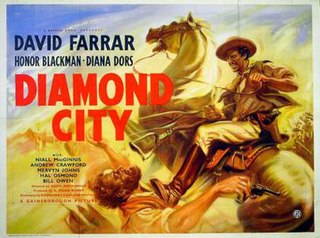
Diamond City is a 1949 British drama film directed by David MacDonald and starring David Farrar, Honor Blackman, Diana Dors and Niall MacGinnis.

Portrait from Life is a 1948 British drama film directed by Terence Fisher and starring Mai Zetterling, Robert Beatty and Guy Rolfe.

Marry Me! is a 1949 British comedy film directed by Terence Fisher, and starring Derek Bond, Susan Shaw, Patrick Holt, Carol Marsh and David Tomlinson.

The Calendar is a black and white 1948 British drama film directed by Arthur Crabtree and starring Greta Gynt, John McCallum, Raymond Lovell and Leslie Dwyer. It is based on the 1929 play The Calendar and subsequent novel by Edgar Wallace. A previous version had been released in 1931.
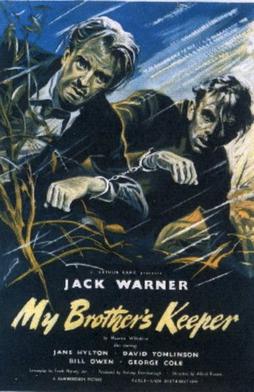
My Brother's Keeper is a 1948 British crime film in the form of a convicts-on-the-run chase thriller, directed by Alfred Roome for Gainsborough Pictures. It was the first of only two films directed by Roome during a long career as a film editor. The film stars Jack Warner and George Cole and was produced by Sydney Box.
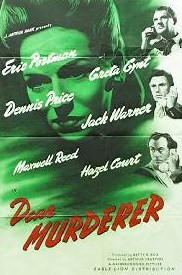
Dear Murderer is a 1947 British film noir crime, drama, thriller, directed by Arthur Crabtree for Gainsborough Pictures, and starring Eric Portman and Greta Gynt.
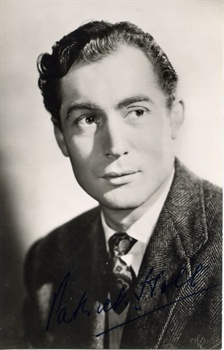
Patrick Holt was an English film and television actor.

The Blind Goddess is a 1948 British courtroom drama film directed by Harold French and starring Eric Portman, Anne Crawford and Hugh Williams. The screenplay concerns a secretary who sets out to expose his boss, Lord Brasted, for embezzlement. It was based on a popular 1947 play of the same title by noted barrister Patrick Hastings.
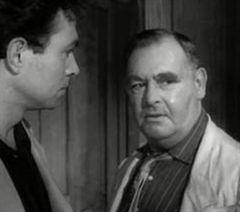
Julien Mitchell was an English actor, in films from the mid-1930s. Mitchell supported comedians George Formby and Will Hay, and appeared in some Hollywood films in the early war years, but is perhaps best remembered for his role as a mad train driver in the quota quickie The Last Journey, made at the start of his film career in 1936.
George Provis (1901–1989) was a British art director who worked on over a hundred films during a lengthy career. He began his career working on quota quickies during the 1930s. After the Second World War, Provis was appointed by Sydney Box to head the art department at Gainsborough Pictures.
Ray Elton was a British cinematographer. Elton was employed by Sydney Box's documentary unit Verity Films during the Second World War. He later worked on several Gainsborough Pictures films, once Box took over the running of the studio.
















